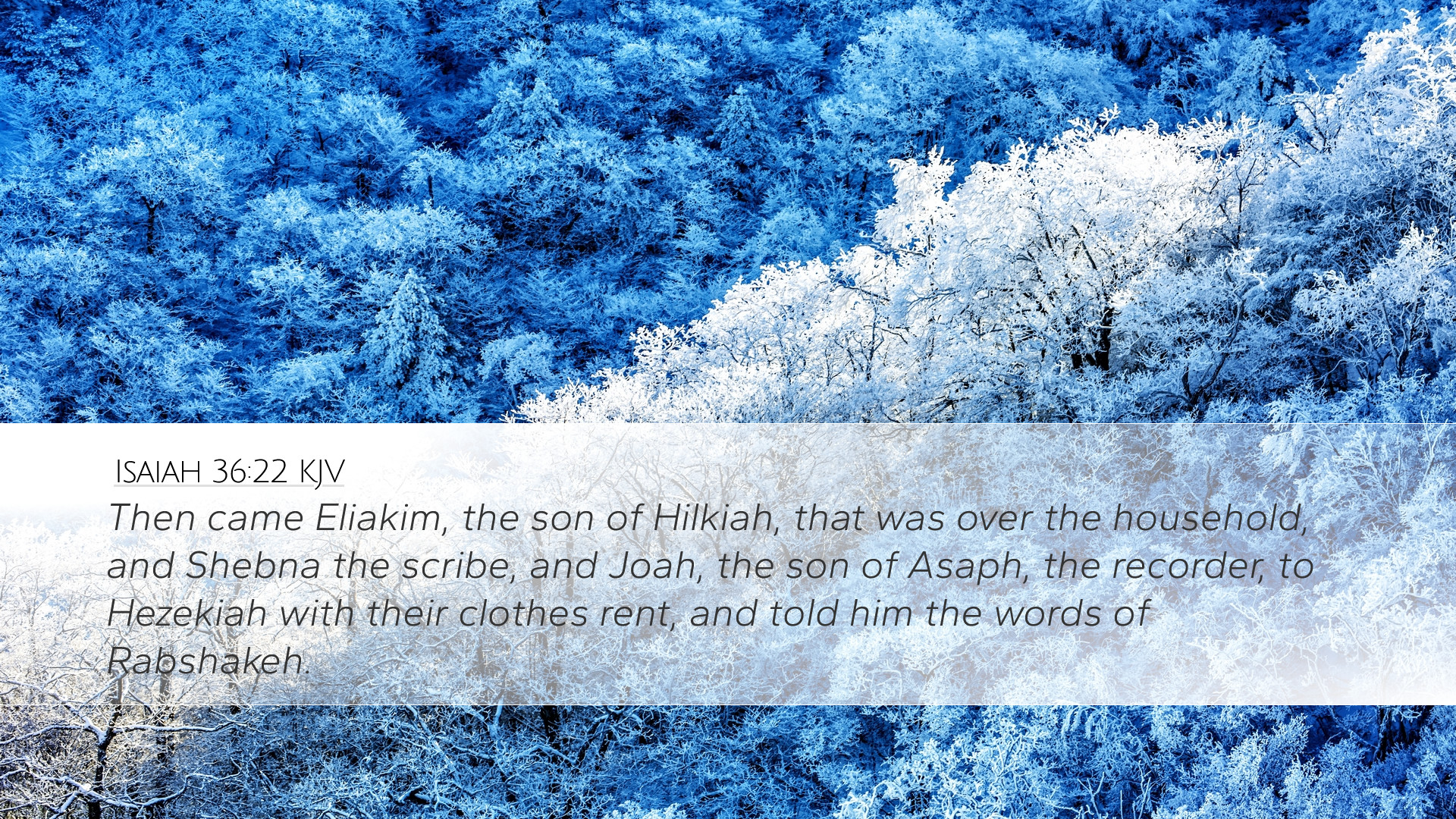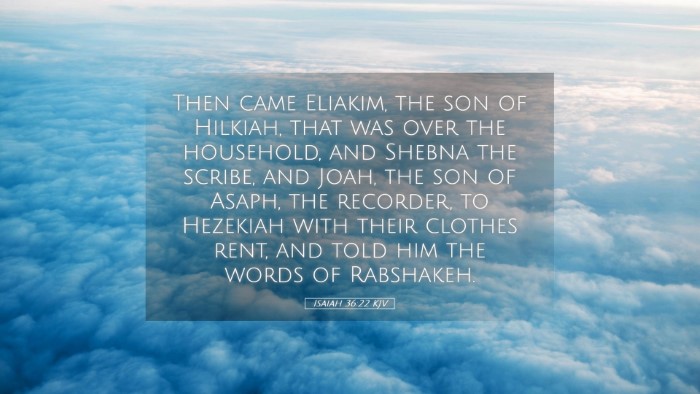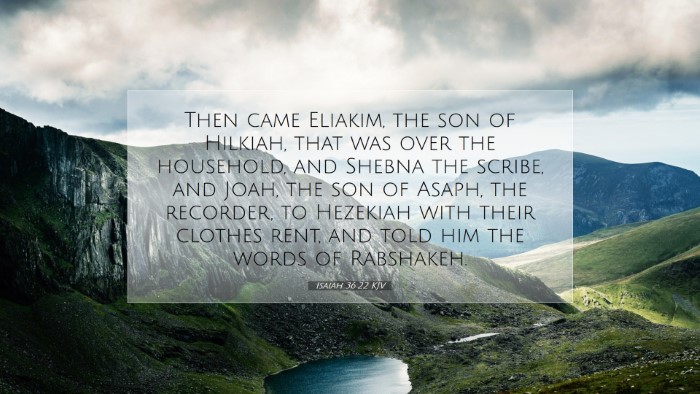Exegesis of Isaiah 36:22
Verse Text:
“Then came Eliakim, the son of Hilkiah, which was over the household, and Shebna the scribe, and Joah, the son of Asaph, the recorder, to Hezekiah with their clothes rent, and told him the words of Rabshakeh.” (Isaiah 36:22, KJV)
Contextual Overview
Isaiah 36 marks a significant moment during the Assyrian siege of Jerusalem, highlighting the interactions between King Hezekiah's emissaries and the Assyrian representatives. This contextual backdrop is critical for understanding the subsequent verses and the larger narrative concerning faith versus fear in the face of overwhelming odds.
Verse Analysis
This verse showcases a critical response from Hezekiah's representatives upon receiving intimidating messages from the Assyrian envoy, Rabshakeh. Their act of tearing their clothes is a traditional expression of mourning and distress, indicative of the grave situation the people of Judah found themselves in.
Eliakim and His Role
Commentary by Matthew Henry: Eliakim, as chief steward or king’s interpreter, represents the authority of Hezekiah, signaling the continuity of the Davidic line in leadership. His inclusion denotes trust that Hezekiah places in him to relay the reality of their distress to the king; he is a symbol of vigilance and responsibility within God’s governance through human agents.
Shebna the Scribe
Commentary by Albert Barnes: Shebna, as the scribe, signifies the communication and documentation aspect of the kingdom's negotiations. His presence emphasizes the administrative side of dealing with threats—record-keeping, strategizing, and ensuring that the king is informed and prepared for the crisis. This shows the necessity of proper counsel and records in turbulent times.
Joah the Recorder
Commentary by Adam Clarke: Joah, the son of Asaph, is noted for being part of historical recounting. His role as the recorder is pivotal; it serves to ensure that events are documented for future generations, thus carrying the weight of history and the covenantal relationship between God and His people forward. The presence of a recorder in such a moment indicates the importance of maintaining a narrative aligned with divine promises.
Significance of Tearing Clothes
Analysis: The act of tearing garments was a profound symbol in Hebrew culture, representing grief, despair, or a deep sense of crisis. This physical manifestation of distress indicates the gravity of communications from the Assyrian threat and the perceived abandonment by God amid political turmoil.
- Symbol of Mourning: In biblical narrative, torn clothes indicate a desperate need for divine intervention.
- Physical Manifestation of Inner Turmoil: The external act of tearing clothes reflects the inner crisis of faith experienced by the leaders and the community.
Theological Themes
Faith Under Siege
The present crisis forces a confrontation between faith and fear. The leaders are visibly shaken yet are called to respond with a reliance on God. This resonates deeply with contemporary readers who may find themselves in situations demanding unwavering faith amidst overwhelming challenges.
The Role of Human Agents in Divine Plans
The involvement of Eliakim, Shebna, and Joah highlights God's providence working through human instruments. God’s protective hand is often shown through the wise and faithful actions of His chosen leaders, urging the faithful today to recognize and engage their roles as instruments of God's will.
Historical-Covenantal Context
The presence of historical figures engaged in this crisis ties back to the broader narrative of salvation history. The actions and responses of these emissaries align with God's ongoing promise of protection and deliverance for His people, assuring contemporary believers of His faithfulness.
Conclusion
Isaiah 36:22 serves not just as a historical account but as a rich theological lesson on crisis management, the importance of faithful leadership, and the necessity of remembering God’s past faithfulness in times of trial. For pastors and theologians, this passage provides a vivid reminder of the human condition—our moments of fear, despair, and the ultimate call to trust in divine sovereignty amid life's storms.
Application for Today
In application, the message of Isaiah 36:22 calls for reflection among Christians today about how they respond to crisis situations. The tearing of their garments is a visible sign of their anguish but also serves as a prompt to turn back to God in prayer and supplication. It urges the faithful to engage in accountable leadership and to document their spiritual journeys and historical narratives of God’s faithfulness for the edification of future generations.


